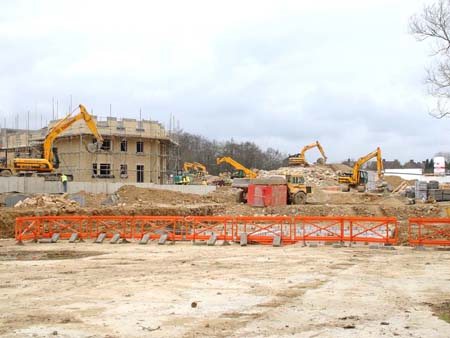|
|
|
Why are blankets no longer made in Witney?
 The chimney of Walker's Crofts Mill being demolished.
Today, though, there are generations growing up in the area who will never have heard of Witney blankets. They know Witney as a rapidly growing, bustling market town which hosts a wide variety of business and light industries. Here are some of the reasons why blanket making is no longer among them.
-
 Early's advertising sign from the 1920s for all-wool Witney
blankets.
- Along with the duvet, central heating was also a factor; there
was no longer the need for layers of blankets at night for
warmth when it was possible to have constant background heating.
The idea of centrally heating our homes has been around for
centuries in one form or another but it was not until the 1980s
that the majority of people in Britain had gas, oil or electric
central heating in their houses.
- Witney had increasingly to compete with the cheaper labour costs
of overseas blanket manufacturers and the opening out of world
markets. It also faced competition from the larger suppliers of
domestic blankets in the north of England. The 1970s and early
1980s were also a time of national recession in Britain which
contributed to the downward spiral of the industry.
-
 Construction of new housing on the site of the 1960s warehouse
at Witney Mill.
|
| |
|
|
Listen:
Download audio file
Keith Crawford, former worker and manager at Early and Marriott
Ltd, presents some of the reasons why blankets are no longer
made in Witney (86Kb).
|
|




